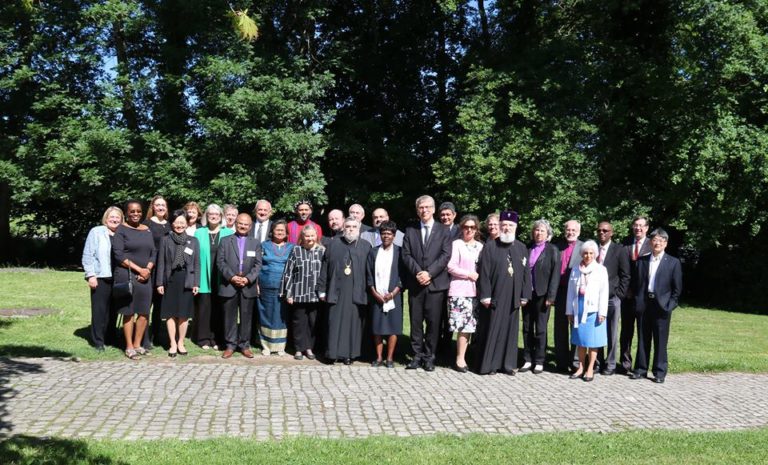
The World Council of Churches Executive Committee met at the Ecumenical Institute in Bossey on 7-12 June 2017, focusing on unity, renewal of the WCC strategic plan and financial strategy, the building project, preparations for the 11th Assembly and observance of WCC’s 70th anniversary.
In his report to the WCC Executive Committee on 11 June 2017, the WCC general secretary Rev. Dr Olav Fykse Tveit focused on visible unity. As he stated, “We are living in a time when the purpose and the objectives of the World Council of Churches are of the highest relevance. The many expressions of polarization, greater gaps between rich and poor, extremism and violence, worries about the future of the planet Earth and withdrawal of accountability for our common home and future create a constant challenge to we stand for, what we can do, and what our values and vision are.” He also reminded that on “April 24 this year HAH Bartholomew I, the Ecumenical Patriarch, visited the Ecumenical Centre and reminded us in his public speech of the legacy pursued by his predecessors since 1920: the call for a council of churches to work for the visible unity of the church.” For these and several other reasons, he affirmed his belief “that there is a need for a new search for unity.” As he said: “The call to unity is not obsolete, it is more urgent than ever. The call to unity for a common and shared witness to Christ is a key dimension of being the one church of Jesus Christ. The challenges we face in the ecumenical movement and in the WCC to express this unity fully, should not lead us to ignore the call to be one, but to more efforts and more perspectives to what it means to be one.”
Tveit mentioned two different perspective on unity. “There is, from one perspective, a critical moment in the ecumenical movement as there are polarizing factors and anti-ecumenical dynamics in many of our churches and beyond. (…) Another dominating perspective is that there is a stronger momentum for moving together, as pilgrims working and praying together for the values of justice and peace as signs of the kingdom of God present among us.” He certainly admitted that “we accept that the “status quo” in the WCC is that we do not demand consensus in all questions, and that we accept that we do not have the significant level of shared faith and order to express our unity in Christ fully and visibly. We also have to accept that there are more issues coming forward that create challenges for the unity in the churches and among us.” Among these: unity against gender-based violence, genuine dialogue to solve together causes of HIV, united initiatives and programs for the protection of children, for the protection of the environment, to end Famine…
Thus the General Secretary concluded: “My understanding of the call from Busan to be together on a Pilgrimage of Justice and Peace is that it is growing and materializing as a way to move together in the ecumenical movement that also offers new contributions to unity in its many dimensions. It can be seen as a theme, a uniting motto, a perspective that brings together our faith traditions and our common witness and service, an approach that calls for more openness, flexibility, and humility. (…) I hope that as we continue our journey toward the 11th Assembly, we are not shying away from reflections on our call to call one another to unity, even if we are not able to fulfill some of the aspirations and hopes for full, visible, ecclesial unity at the moment.”